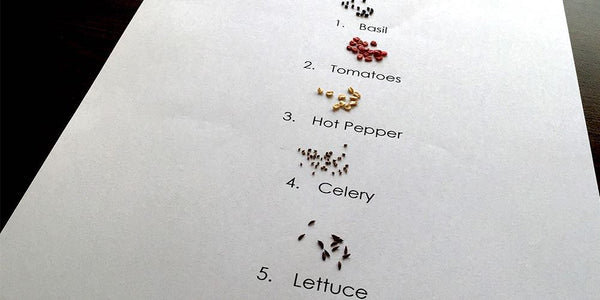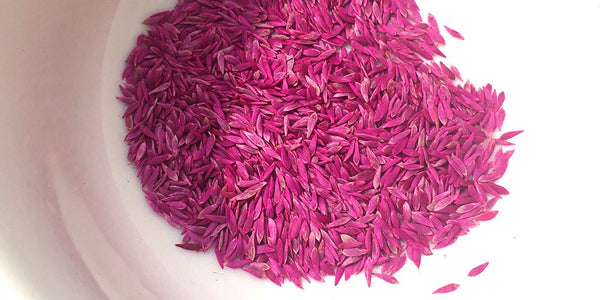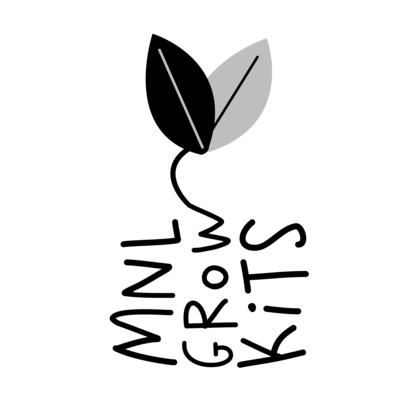Difference Between Open-Pollinated Varieties, Heirloom and Hybrid Seeds
So you finally decided to flex your muscles and check if you either have a black or green thumb. You giddily go to your favorite garden supply shop and happily choose between endless kinds of seeds available right in front of you.
You pick basil, the easiest one, and you see numerous kinds of it. OPV, & HYBRID it says, then you start to feel intimidated and scared and, oh well…
Picking which kind of seed to sow is usually more complicated than just trying to choose which kind of basil to grow. There are numerous kinds of seeds available out there. And arming yourself with good ole’ information will get you to and through this stage of building your gardening career. ;)

Among the many important decisions every traditional gardener makes is the choice between OPV (open pollinated varieties), Hybrid and the very artsy-sounding Heirloom Seeds.
Each of these types has pros as well as cons and veering towards a seed type usually depends on the growers’ preference, needs and ehhem, core values.
In the simplest sense, the main distinction among these types is that growers or seed-savers can save and replant seeds coming from OP and heirloom varieties, but definitely not hybrids.
That’s it! But if you’re the curious type, read on.
To give you a deeper context of the difference of each varieties, let’s take a look at them one by one.
Open Pollinated Varieties (OPV)
First, what does open-pollination mean?
Open-pollination is when those cute little insects, birds, you, me (not including Dupree), wind, or other natural instrument creates pollination.
Because open-pollination is uncontrolled and unrestricted on the movement or flow of pollens between individuals and plants. Open-pollinated plants are usually more genetically diverse.
This causes an amazing variation within plant populations, which ultimately allows them to adapt to local growing conditions and climates every year. Think of corns that has multiple colors of corn kernel per cob.
Seeds coming from open-pollinated variety of plants can be replanted and you can still expect the same exact plant growing out of it.
Heirloom Seeds
Heirloom seeds on the other hand is how and what open-pollinated varieties are but is usually saved and handed down through multiple generations of families.

Hybrid Seeds
Hybrid Seeds is a product of hybridization.
Hybridization is a process in which the pollen of two different species or varieties are crossed by human intervention through pollination. The objective of which is to get the best traits of two different varieties and combine them to come up with a better variety.
Think of combining say, the sweetness of MANGO A, and the size of MANGO B, to come up with MANGO C, that’s super sweet and big at the same time.
Hybrid seeds can come and occur naturally through random crosses, but big companies usually come up with hybridized seeds, often labeled as F1 varieties. They are deliberately crated to breed a desired trait, or characteristic.
The first plant coming from a hybridized seed also tends to grow better and produce better yields than the parent varieties. However, any seed produced by the first plant coming from a hybrid seed is genetically unstable, hence, it’s not advised to be saved and planted for use in the following years.
Growers who use hybrid plant seed varieties must purchase new seed every time they want to plant.
So what’s best? OPV, Hybrid or Heirloom?
There’s no golden rule in choosing seed varieties. It all depends on the grower’s preference. Each seed type also has pros and cons.
OPV and heirloom varieties can be saved and replanted after a couple of months or years saving you money. Hybrid seeds on the other hand yield better fruits/plants per grow but cannot be saved and replanted for future use.
So, choosing among the types of seeds available out there really depends on what your current needs and goals are. No matter what you choose, it’s always worth remembering that growing something whether OPV, heirloom or hybrid variety is already a huge step towards embracing the sustainable kind of living. ☺
